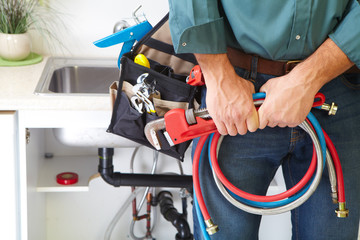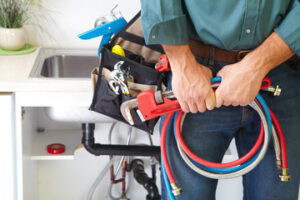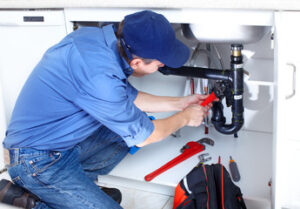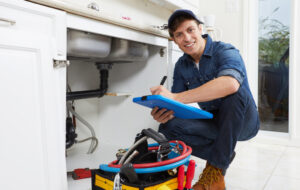Backflow preventers prevent water from flowing backward into the public water supply line. This is dangerous because it can transfer bacteria like Salmonella, Campylobacter jejuni, and Giardia into your clean drinking water.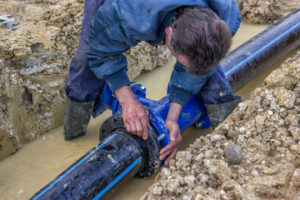
Plumbing backflow is one of the most profitable subcontracting careers, but only when you have proper training and certification. Visit Website to learn how to install backflow prevention devices.
Backflow prevention equipment is installed in order to protect your plumbing from contaminants. These devices can save you a lot of money down the road by avoiding expensive repairs that could happen due to foreign materials in your pipes. It is very important that you have a certified plumber perform this installation to avoid any complications.
Backpressure occurs when there is an imbalance in water pressure between your property’s water line and the city’s main water line. If this issue develops, it can cause the water to flow backward into the city’s lines, contaminating it with human waste or chemicals.
There are several types of backflow preventers available, ranging from dual check valves to air gaps and pressure vacuum breakers. Your plumber will be able to recommend the best device for your property and needs. Once the backflow preventer is installed, it must be tested. This involves a plumber moving clean water in the opposite direction through your system and observing whether or not the backflow preventer works as it should. This process usually costs between $20 and $100. It can also be folded into the overall installation price, so it is worth asking about if you are considering having this service done.
Once the backflow preventer is tested and approved, you will need to have it retested every year. The city will send you a notice of violation if you don’t have your backflow preventer tested on time. In addition, you will need to submit an annual report.
On your testing day, your plumber will need to shut off your water temporarily. Then, he or she will open and close the valves on your backflow device while taking pressure measurements. This ensures that the system activates and is working correctly.
Testing
If your water turns cloudy or yellow, it could mean you have a backflow issue. It’s a good idea to call a plumber right away, as it could result in severe health problems for you and your family.
Your backflow device helps keep dirty water out of your clean drinking water supply, but it must be tested regularly to ensure it is working properly. The test involves closing and opening valves on the device to see if there is any water movement. Your plumber will also check the gauges on the assembly to ensure they are reading correctly.
A backflow tester will use a kit to perform the tests. These kits vary in complexity, but all are designed to give you accurate results. A professional backflow technician will know which kit to select based on your backflow device type and hazard rating.
The hazard ratings are determined by the level of risk your backflow device will protect against. Generally speaking, properties with higher hazard ratings will need to have a test carried out on their backflow device annually. This includes properties that use fire sprinklers, swimming pools, factories, or restaurants with grease traps.
Backflow prevention devices are vital to keeping the city’s water supply clean and free from contamination. They are an essential safety measure that must be installed on all cross connections in buildings with a potable water supply, including apartment and condominium buildings, shopping centers, restaurants, hotels, and manufacturing facilities with grease traps.
Backflow devices can be vulnerable to theft. For this reason, Pacific Backflow installs theft deterrence devices on all backflow preventers we install. These devices include cages, cable locks, and valve guards. While these don’t guarantee against backflow preventer theft, they do significantly reduce the likelihood of this crime occurring.
Maintenance
A backflow preventer is a complex device, and it should not be left unattended. It is a safety device installed in the piping system to protect drinking water from contamination. Backflow prevention devices should be tested and maintained regularly to ensure that they work properly. They are usually not expensive to repair or replace. If you are replacing a backflow assembly, it must be reinstalled into the piping system according to specific piping codes in your area. This includes the proper use of braces, brackets, or mounting pads to support the assembly and handle the forces of moving water. The hydraulic conditions of the assembly must also be evaluated to ensure that they are working correctly. Hydraulic conditions such as pressure fluctuations, disc compression, and the effects of elevated temperatures can damage internal components of the RP.
The most common type of backflow prevention device is a dual check valve. It has two separate check valves that are activated by different water flows. If the check valves are not functioning properly, they can cause contaminated water to backflow. In some cases, backflow can be caused by the release of volatile chemicals. These chemicals can include insecticides, herbicides, and even bleach. Besides chemical pollutants, backflow can also introduce dangerous bacteria such as E. coli. coli and Shigella into your drinking water.
Every backflow preventer must be inspected and tested by a certified technician annually to make sure that it is still in good condition. This annual inspection can help identify problems early and fix them before they turn into serious issues. This process normally only takes about half a day to complete and involves momentarily turning off the water supply.
During the annual test, the inspector will begin by assessing the current condition of the backflow prevention device. They will then shut off the water supply and attach a testing kit to the device. After a few minutes, they will open and close the valves to check their condition. The test results will indicate whether the backflow preventer needs to be repaired or replaced.
Repairs
Your backflow preventer is a safety device that stops contaminated water from entering your city’s clean water system. Unfortunately, sometimes these devices malfunction. There are several common signs that your backflow device needs to be repaired or replaced.
If your home or business suffers from a backflow problem, it’s important to contact a licensed and experienced plumber. They can inspect the equipment, fix any issues, and provide you with a complete written report. This report will include all necessary testing, repairs, and maintenance requirements. This report will also explain why your backflow preventer is malfunctioning.
Many homes and businesses require a backflow prevention device to protect their customers and employees. For example, salons, restaurants, and car washes use a lot of chemicals and pesticides, which can cause backflow problems. These problems are dangerous and could potentially contaminate the city’s clean water supply.
Backflow prevention devices must be tested annually to ensure that they are working properly. A failed test could result in a fine or the disconnection of water services. A backflow repair is the best way to keep your property safe from contamination.
A backflow repair technician will release the pressure from the assembly, remove the components, and inspect each one for the cause of the failure. Then they will replace the parts and reassemble the assembly. After the repair is finished, the assembly will be retested to make sure that it meets the manufacturer’s original factory test specifications.
Before the backflow repair technician begins the process, they must evaluate the work area around the assembly for any restrictive conditions. This includes evaluating whether the backflow device is located in a confined space and, if it is, placing safety barricades or entry restrictions so that the repair technician or the public is not endangered during the repairs.
During the backflow repair process, it’s critical to use only genuine replacement parts. It’s also important to understand that the rubber parts on backflow assemblies are factory-installed, which means that changing these rubber parts can affect the operation of the assembly and void any approvals.

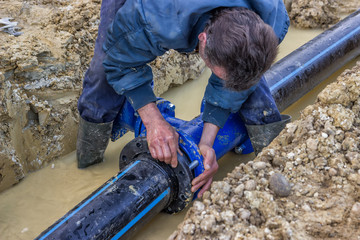
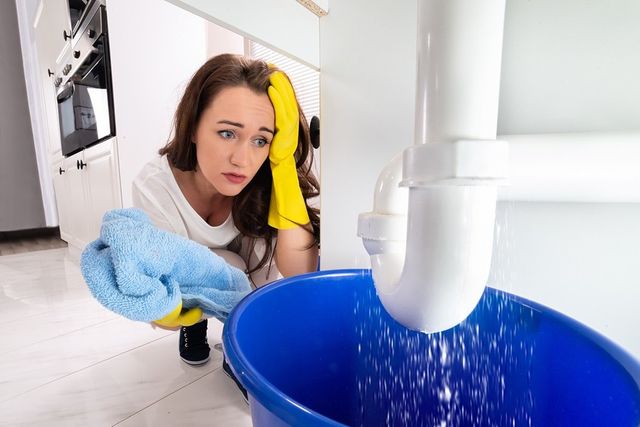

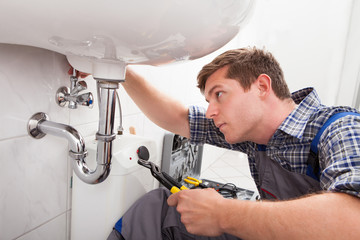
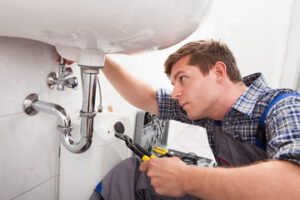

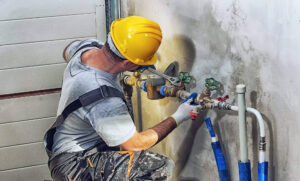

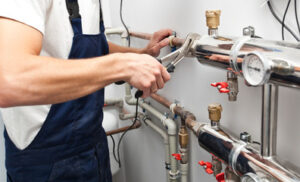
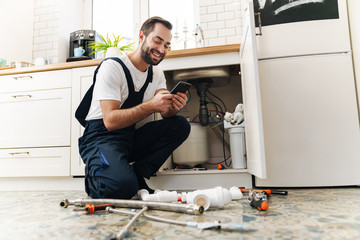
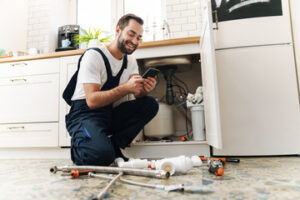 A plumbing expert at
A plumbing expert at 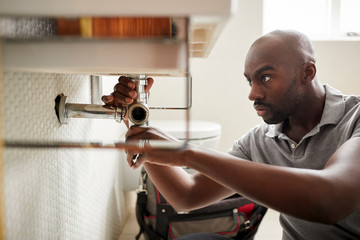
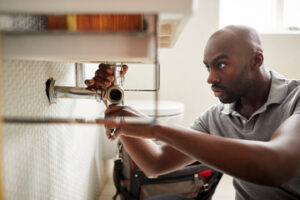 A Residential
A Residential 